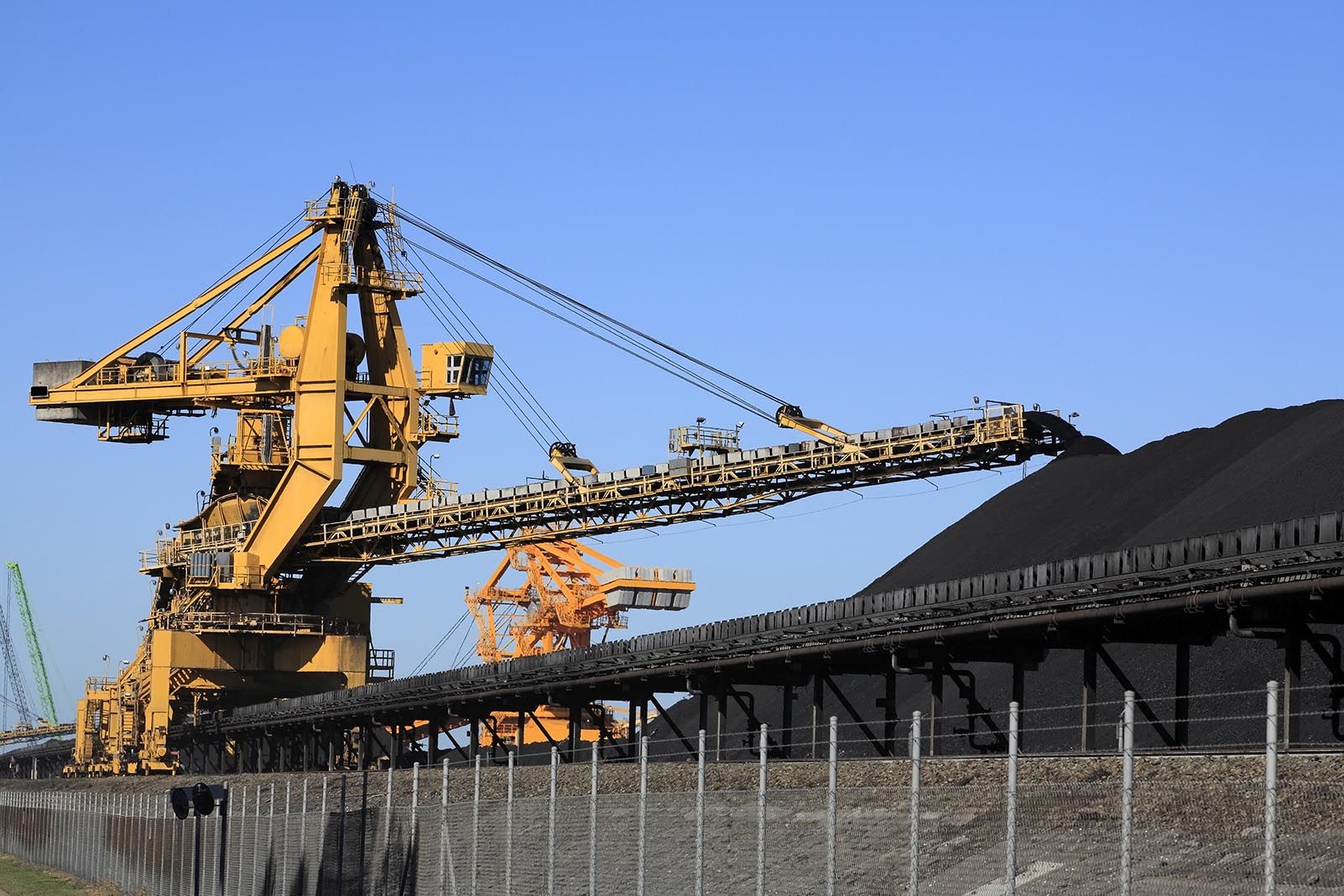Australian Dollar's 'Fair Value' Rises Again Following Another Record Trade Surplus Print
- Written by: Gary Howes

Above: Australian coal terminal. Surging coal prices have boosted Australia's terms of trade. Image © Adobe Stock.
- GBP/AUD reference rates at publication:
- Spot: 1.8738
- Bank transfer rates (indicative guide): 1.8082-1.8213
- Money transfer specialist rates (indicative): 1.8570-1.8644
- More information on securing specialist rates, here
- Set up an exchange rate alert, here
The Australian Dollar will find itself well insulated against any major decline by Australia's overwhelmingly supportive trade dynamics which continue to impress economists owing to surging global demand for coal and natural gas.
It was reported on Oct. 05 that Australia had run up another record trade surplus in August as export earnings surged amidst ongoing strong demand for commodities.
The trade surplus jumped by A$2.4BN to A$15.1BN in August, beating expectations for a reading of A$10BN.
This is the third successive record high for the trade surplus.
"Australia’s widening trade surplus points to robust underlying demand for AUD," says Elias Haddad, an economist with Commonwealth Bank of Australia.
Secure a retail exchange rate that is between 3-5% stronger than offered by leading banks, learn more.
Export earnings rose 4.1% in August (+A$1.9BN) owing to an increase in exports of resources (+A$1.3BN) and rural goods (+A$0.55BN).
Imports declined by 1.5%, (-A$0.5BN).
"Looking through the month-to-month volatility, the key dynamic is that higher commodity prices have significantly boosted export earnings, driving the trade surplus to new record highs," says Andrew Hanlan, Senior Economist at Westpac.
LNG and coal exports were seen to be the two main contributors to the new record.
Australia's top three exports are: iron ore (21%), coal (11.5%) and natural gas (10%), the two energy exports in this top-three basket are of particular interest at present given the intense bidding war for natural gas between Europe and Asia.
"A very strong lift in coal and LNG exports more than offset a sharp decline in iron ore exports. Adding to this was a decline in imports as intermediate goods fell sharply," says Hayden Dimes, Economist at ANZ.
China is facing a significant power crisis amidst domestic coal shortages, in part a result to the de facto banning of Australian thermal coal purchases by authorities.
Reports suggest the Chinese won't budge on their stance but it was reported last week that India is buying the Australian coal that has been stranded inside China for months.
Reports suggest India is facing a power crisis with the country's 135 thermal power plants said to have less than 4 days of coal.
"80% of India’s coal supplies come from the state-owned, inefficient Coal India Ltd," says John Meyer, Head of Research at SP Angel.
"India’s coal mining areas have been limited by heavy September rains," he adds.
The net result? Prices for Australia’s Newcastle coal, considered an Asian benchmark, have surged close to a record.
Strong trade dynamics are supportive to Australian Dollar valuation and we wrote at the start of the week they offer insurance against major declines that might come from Reserve Bank of Australia policy and/or the domestic Covid situation.
Westpac's foreign exchange modelling (above) now finds that the Australian Dollar's 'fair value' level is now at a seven year high "on the huge commodity price rise".
This yawning undervaluation gap will offer the currency support in the event of further U.S. Dollar strength, market stresses and an environment of 'lower for longer' interest rates at the RBA.






